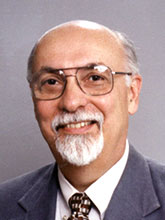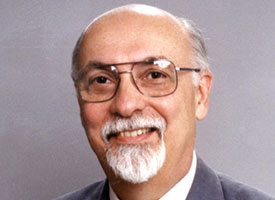With Dr. Bruce Hartung
Concerns raised in “Pressure Points” sometimes ignite passionate and very divergent responses. The basic thread of the conversation that continues this month began in the January column (at reporter.lcms.org/2012/pressure-points-january-2013) about bullying in the church. But

it was the challenge of last month’s column (reporter.lcms.org/2013/pressure-points-april-2013) that stirred a flurry of additional and often thoughtful responses.
The basic issue is conflict between and among congregational lay leaders and pastors. My hunch is that this conflict will neither cease because of this conversation nor be solved through it. But we can publicly recognize such a conflict when it exists and develop strategies to approach and resolve it — led by God’s Spirit and repentance by all involved parties.
We’ll start with the following positive response from a pastor:
I retired several years ago and had no idea that such lack of understanding among our clergy and laymen existed. In my ministry I had a habit of always taking my elders into my thinking. I even encouraged them to point out to me when they thought I made a mistake (and I made some doozies). My thinking was that together we serve God’s people.
This reader points to a key ingredient: openness to feedback. Such openness is born within relationships of relative safety in which people trust each other’s intentions (i.e., “they are not out to get me”) and when they are working toward a common goal (i.e., “we all care for Christ’s flock and want to faithfully live as witnesses to Christ”). All of this is done at the foot of Christ’s cross and powered by God’s Holy Spirit. People who are mutually open to feedback have disagreements, of course, but they generally do not lead to impasse situations.
And here’s a suggestion:
Our church offers two immediate resources for laymen who are concerned about their pastor’s failure to fulfill his duties. First, each congregation should have a board of elders, to whom the pastor(s) are accountable for the performance of their duties. This relationship of accountability is the chief reason that a pastor should not be involved in the selection, nomination or appointment of elders. Second, every circuit has a circuit counselor who can be called upon when the elders fail to exercise their duties in this matter.
The keys here are both internal accountability and outside consultation. Internal accountability is similar to what was described in the first reader’s response. But, locked in a chronic impasse (as a number of communications to me about this have indicated), an outside voice and perspective often can be quite useful. The circuit counselor is one outside voice. So are others, such as additional district support, Synod reconcilers, Ambassadors of Reconciliation, Grace Place’s congregational wellness weekends, the Alban Institute, Healthy Congregations and the like. The point here is to move toward outside help.
Most painful to me, though, is the repeated refrain from congregational leaders where there is intense conflict, where members are not receiving the pastoral care they believe is part of the vocation of a pastor and part of what is their spiritual need in their walk in this fallen and often painful world. It is most certainly true that judgments cannot be made via letter or call. But the voices of pain do need a place to be heard.
Who speaks for the dying and dead parishioners who never received a visit? Who speaks for the shut-ins who see their pastor ride by but never stop? Who speaks for the lost, searching for a path out of their misery, but never get responded to? Who speaks for parents of a suffering/dying child who call and receive no support?
Let’s speak! In my walk on this earth I need people in the body of Christ to accompany me (and at times, I accompany them). In times of stress I need people who reach out to me, engage me, confront me and share Christ with me eyeball-to-eyeball. These are actions of the community of believers and they are especially actions of the called workers of the church. Voices such as this last reader’s need an energetic and robust active response of care from our workers. Anything less is tragic.
The Rev. Bruce M. Hartung, Ph.D., is professor of Practical Theology and directs the M.Div. and Alternate Route programs at Concordia Seminary, St. Louis. He can be reached at hartungb@csl.edu.
